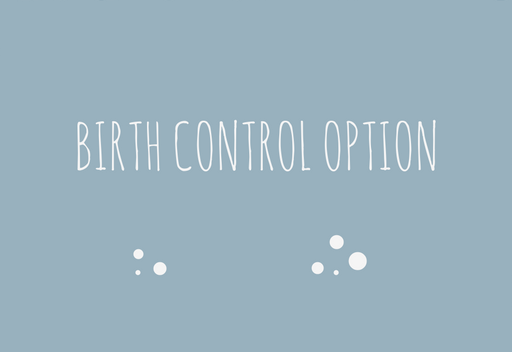Birth Control Option
Home / Popular / Birth Control Option
Family planning is an important aspect of one's married life. While some are eager to go
the family way, others might take their own time. And so as to not hamper their love life dealing
with the stress of conceiving, adopting a suitable contraceptive technique is essential.

Here's a list of various birth control methods available for your help:
- Natural methods: Natural methods do not require the use of any physical device or pill and are thus, side-effects free. It includes Abstinence i.e. avoiding vaginal intercourse and indulging into other forms of pleasures to avoid pregnancy or Withdrawal i.e. withdrawing the penis from the vagina just before ejaculation to prevent the semen entering the female tract. The latter is however, not 100% effective with conception occurring in 1 out of 5 cases. One can also monitor her fertility cycle to plan their love-making accordingly. Fertility is highest before and during ovulation which is approx 12-14 days of her menstrual cycle.
- Barrier methods: These include usage of physical devices like condoms, diaphragms, cervical caps, spermicidal creams etc. Though all of these do not cause any side effects but male condoms are considered to be the most effective form of protection from both pregnancy as well as sexually transmitted diseases.
- Hormonal methods: Hormonal contraception involves the usage of pills, patches or injections which release certain hormones into the body that help in preventing pregnancy. Oral contraceptive pills, Depo-Provera injections, vaginal rings are the most common examples of such contraceptives. As hormones affect the body in a number of ways, these hormonal methods are known to cause certain mild-to-moderate side effects.
- Intra-Uterine Device (IUD): Also known as long acting reversible contraception, these IUDs like copper-T or skin implants provide protection for a period of 3-5 years or more. So no need to take pills daily or using condoms every time. High success rates and long lasting effect of IUDs comes with a price. Firstly, it needs medical assistance for fitting inside the uterus. Secondly, it can cause numerous side effects like irregular vaginal bleeding, menstrual irregularities, pelvic inflammatory diseases etc.
- Emergency contraception: As the name suggests, it provides contraception in case of an emergency such as having unprotected sex or failure of other normal contraceptive. The emergency pill can be taken within 72 hours of having sex in order to prevent conception.
- Permanent contraception: In case the couple does not want to have any kids in the future, they can go for vasectomy (blocking vas deferens in males permanently to stop the passage of sperms) and tubal ligation in females (tying the fallopian tubes to prevent eggs from reaching the uterus for fertilisation) for everlasting contraception.







